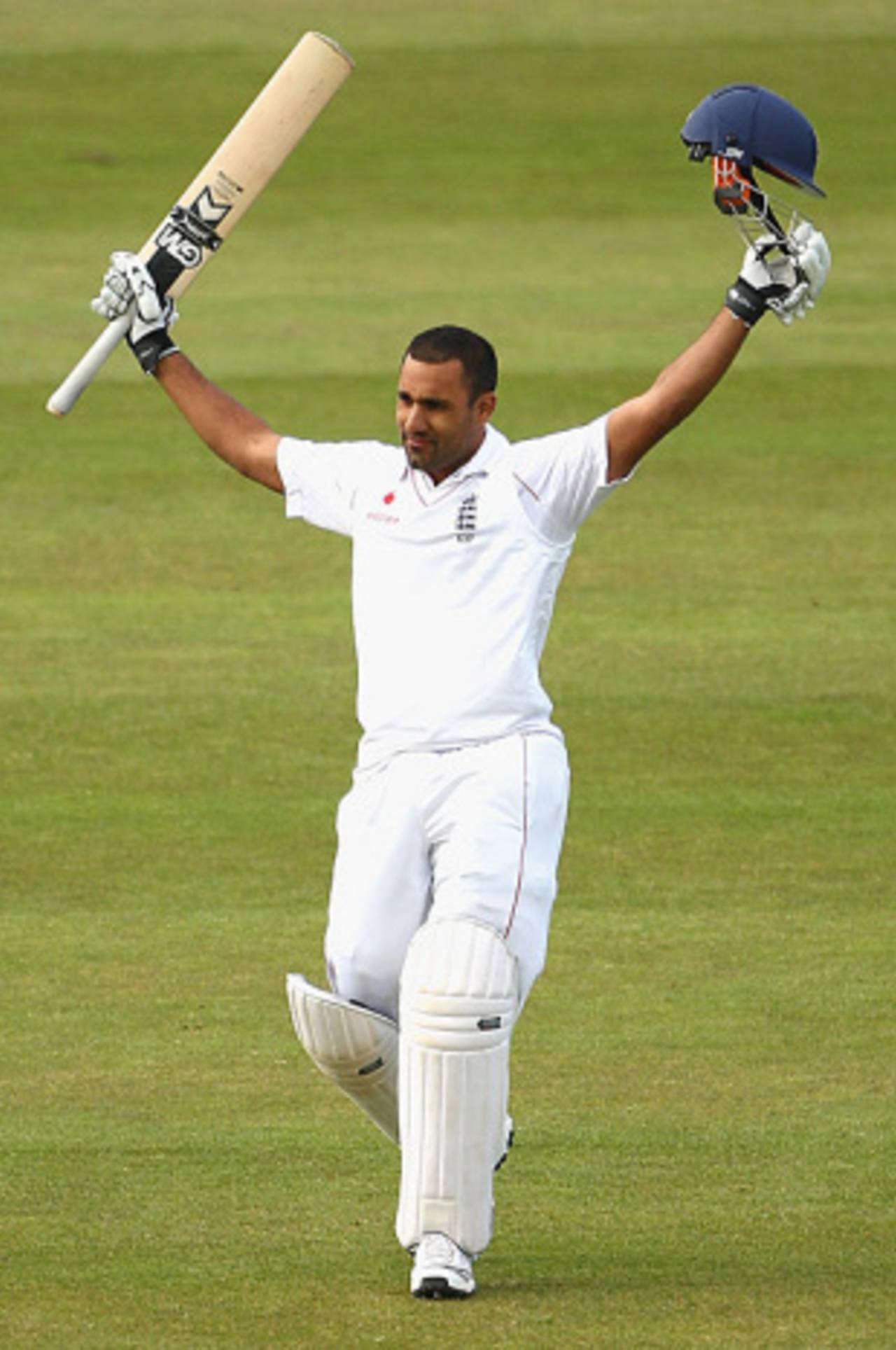England officials had long hoped Michael Vaughan would turn out at Edgbaston this week, albeit for the purposes of an Ashes warm-up rather than a retirement press conference. The architect of the 2005 Ashes victory was England's original and preferred choice to replace the underwhelming Ian Bell at first-drop this summer until knee injuries and the wily seamers of young Archie Vaughan forced a rethink.
The fact that Vaughan's departure has been met with resignation, as opposed to widespread angst, by the nation suggests that the man currently in situ at No. 3 has served England well. Ravi Bopara might have seemed a risky proposition when posted at first-drop for the opening Test of the summer against the West Indians, but back-to-back centuries, complementing his 104 scored at No. 6 in Barbados, have convinced many that he has both the temperament and the technique for Ashes combat.
Like Vaughan, Bopara possesses a laid-back temperament and an array of breezy strokes that belie the ferocity of the competitor within. Indeed, it was Vaughan who counselled Bopara through his dispiriting debut series in Sri Lanka - which culminated in three consecutive ducks - and provided the template for his understudy to draw from in his bid to cement the No. 3 position.
"He took me under his wing to start with," Bopara recalled. "He talks very positively about the game. He never makes you feel under pressure, and I think that's one of his big qualities.
"But whatever anyone says to you, at the end of the day you've got to have it within yourself to go out and approach a game in a certain way. No one is really going to be able to take all the pressure away from you, apart from youself. That's where you excel as an international player or you don't. If you can go through your lowest, can you come back? And can you stop yourself going through those lows? If you look at the very best players in the world, their careers don't go up and down. They stay level. They might go through a little dip and then go back up. That's the key."
Bopara's Test career has been anything but level to date - three straight centuries following three straight ducks - but consistency is proving less elusive. He compiled steady innings of 43 and an as-yet unbeaten 88 in England's practice match against Worcestershire, evidently recalibrating his batting after the helter-skelter of the World Twenty20 and IPL campaigns.
Compliments have not been in short supply for Bopara of late, but perhaps the most significant of all was one of the backhanded variety. Shane Warne, who has not let the small matter of retirement dent his attacking instincts, recently questioned Bopara's temperament and vanity. Leaving aside the pot-kettle implications of the latter sledge, the former critique appeared every bit the well-practiced mental disintegration ploy which Warne employed on many worthy foes over the years. Clearly, Bopara has rattled the Australians.
"I'm not bothered about comments like that," Bopara said. "You get that on the field now and then - when I was young and first came into county cricket the older guys did get stuck into you and they had their piece to say. [Warne] is someone who has done a lot in the game, he obviously likes to stay in the media and enjoys having his name put in the paper. He can say his bit."
Little seems to faze Bopara these days. Not one to obsess over his game, Bopara spends much of his free time walking his rottweilers, working on his car, or socialising with mates, many of whom have little affinity with cricket. "They only know some of the big players - they might know Sachin, they might know Ricky Ponting - but they don't really know anything about it," he said. "Sometimes they won't even know who I'm playing against. In a way, that works out well for me."
The hype of an impending Ashes series doesn't appear to be distressing him, either. Unlike most participants this summer, Bopara's childhood was not spent daydreaming of antipodean rivalries and terracotta urns, but rather organising tape-ball games with his Brampton Manor schoolmates.
"Before [2005], I didn't see it as such a massive series," he said. "It only really hit me when we actually won it. That was when I realised, 'Jesus, it really is a big series. It really does mean a lot to everybody.' I knew it was a big series but it really doesn't hit you until you win it and the celebrations went on for a long time. I thought it was just another series."
Bopara played a walk-on role in 2005 when, as a 20-year-old, he scored 135 for Essex against the Australians in the week preceding the series-deciding Test at The Oval. This time, with a starring role in the offing, he is determined not to fluff his lines.
"I don't think it is a bad time [to play Australia]," he said. "They've had some quality bowlers in the past like McGrath, Gillespie and Warne and they don't have them now. It might be a good time. But at the end of the day, every cricketer starts somewhere. This could be the making of two of their bowlers. They could be on top form, so that's why we don't take it likely. We go out and we prepare as if we're facing the best. Everyone starts somewhere, and even though they might be new to the team and new in their international careers, they could still be very, very dangerous."
Alex Brown is deputy editor of Cricinfo
